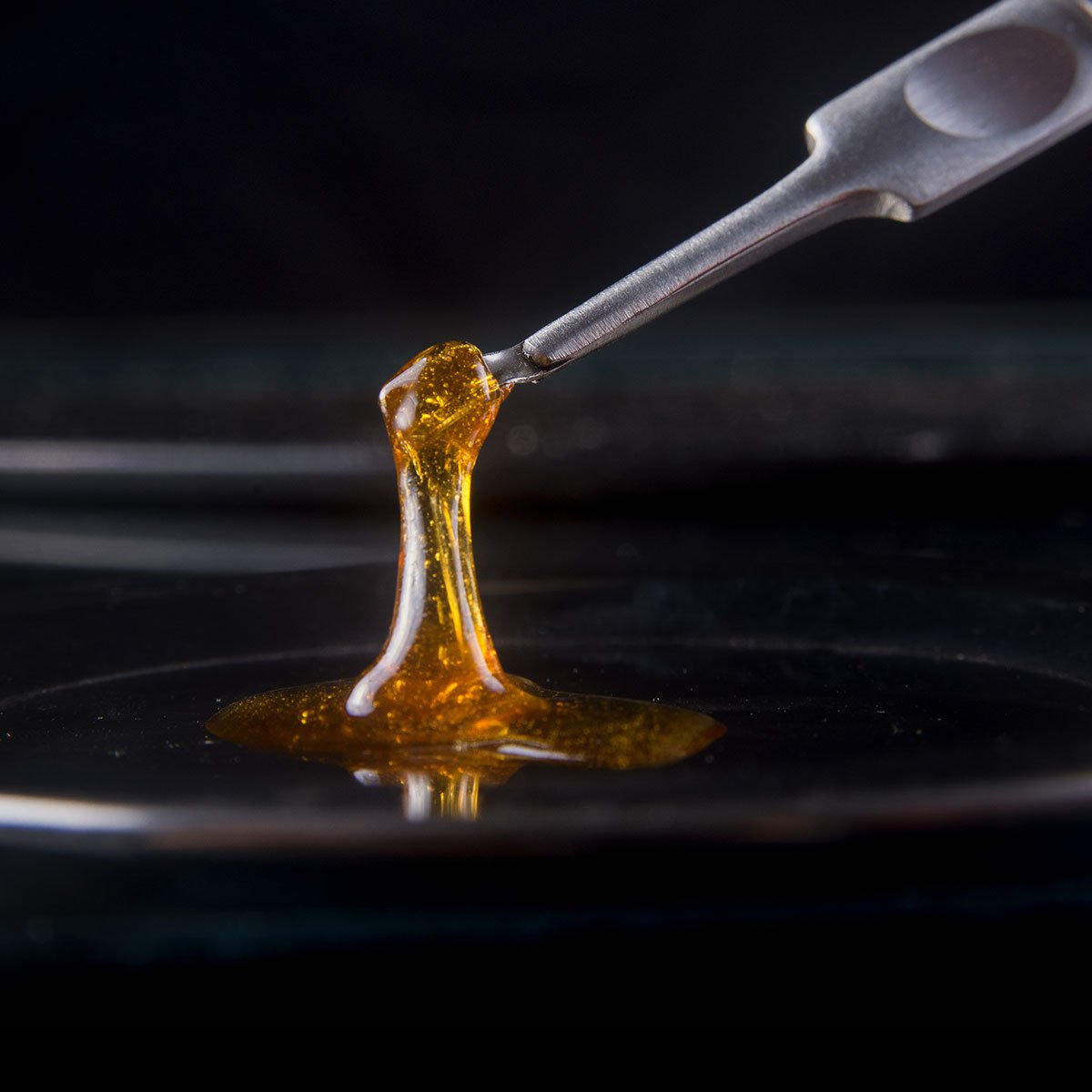Symptoms I Need Dab Weed Rehab
It’s critical to recognize these signs of dab cannabis addiction and to get assistance from a professional if you or someone you know is experiencing them.
We recognize that determining the need for rehab can be difficult, which is why we have written this guide to give you insightful information. You will have a better grasp of the signs of dab cannabis addiction by the end of this essay, as well as the significance of getting the right therapy.
Let’s study the warning indications that it’s time for dab cannabis treatment now.
What is Dab Weed and the Risks of Abusing It
Cannabis concentrate, sometimes referred to as dab weed, is a very strong variety of the drug. Its formulation and potency are different from regular marijuana. Dab weed is produced by extracting cannabinoids, usually tetrahydrocannabinol (THC), from the plant material using solvents like butane, whereas marijuana is typically smoked or vaporized in its plant form.
The much greater THC content of dab cannabis is one of its main distinguishing characteristics. While the THC content of conventional marijuana normally ranges from 10% to 25%, dab weed can have THC concentrations of more than 80% or even higher. When dab cannabis is ingested, it might have a stronger, quicker psychoactive effect due to its high potency.
Heavy and protracted dab cannabis consumption carries a significant risk. Dab weed’s high potency might cause intoxication to start stronger and more quickly, which could result in loss of control and poor judgment. This heightened drunkenness raises the possibility of mishaps, injuries, and risky behavior.
Additionally, regular dab cannabis use can increase tolerance, which means people may require greater amounts to get the desired benefits. This can increase the amount of dab weed used and start a vicious cycle of dependence. Dab marijuana use has been associated with several adverse effects, including:
Psychiatric effects
In those who are vulnerable, frequent dabbing of marijuana can increase feelings of anxiety, paranoia, and even psychosis. Additionally, it can make existing mental health issues worse.
Respiratory conditions
Dabbing, which entails heating a concentrate and breathing in the vapor, has the potential to irritate the airways and cause lung issues.
Cognitive dysfunction
Chronic dab cannabis usage may compromise cognitive function, memory, and attention, which could affect academic or professional performance.
Utilization and addiction
The risk of dependence and addiction may rise due to dab weed’s high potency. Those who become dependent may experience withdrawal symptoms when trying to stop using or reduce their usage.
The need for professional intervention and treatment to combat addiction and handle related issues may result from persistent and excessive dab weed use, thus it is critical to be aware of these hazards.

What are the Obvious Signs of Dab Weed Addiction
Knowing when someone needs rehab depends on being able to recognize the symptoms of dab weed addiction. Here are some typical physical, psychological, and behavioral signs that could point to a problematic dab cannabis relationship:
Physical Signs:
- Tolerance and withdrawal: People who have grown tolerant to dab cannabis may need bigger amounts to feel the desired benefits. When trying to stop using dab cannabis or cut back, they might also face withdrawal symptoms like agitation, insomnia, loss of appetite, and sweating.
- Chronic dab cannabis use can result in blood vessel dilatation, which results in bloodshot or red eyes.
- Regular dabbing of marijuana can impair coordination and motor abilities, resulting in clumsy or jerky movements.
- Appetite changes: The use of dab cannabis can affect appetite, leading to notable increases or decreases in the amount of food consumed.
Psychological Symptoms and Signs:
- Mood swings: Excessive dabbing of marijuana can cause frequent and erratic mood swings, such as irritation, anxiety, melancholy, or euphoric outbursts.
- Issues with memory and cognition: Dabbing weed can cause problems with concentration, attention, and short-term memory. People could have trouble recalling previous events or learning new knowledge.
- Long-term dab cannabis use may cause anhedonia, which is a reduction in the capacity for enjoyment or interest in previously pleasurable activities.
- Psychosocial functioning: People may struggle in several areas of their lives, including relationships, jobs, and school. They can stop caring, lose interest, or forget their obligations.
Behavioral Changes and Social Implications:
- Abandoning responsibilities: Addiction to dabbing pot can cause a deterioration in performance at a job, school, or home. Neglecting responsibilities could result in issues with productivity and dependability.
- Isolation: People who are addicted to dab cannabis may stop participating in hobbies, activities, and relationships. They might spend an inordinate amount of time alone or with a small group of peers who use drugs.
- Financial challenges: The cost of dab cannabis and the requirement for frequent use might put a burden on one’s finances. Financial difficulties could force you to borrow money, sell your possessions, or engage in unlawful activity to support your habit.
- Legal issues: Prolonged and heavy dab weed use increases the danger of encountering the law for offenses like driving under the influence, possession, or engaging in illegal activity to get or pay for dab weed.
These warning signs and symptoms point to the requirement for dab cannabis treatment. It is essential to seek professional assistance and support if you or someone you love is going through several of these symptoms to address the addiction and start the road to recovery.
How will Dab Weed Addiction Affect Your Health and Lifestyle?
Your health and way of life may suffer significantly if you develop a dab weed addiction. Let’s look more closely at the probable effects:
Effects on health:
- Respiratory problems: Smoking dab weed entails breathing concentrated vapor, which over time can irritate and harm the respiratory system. Chronic dab cannabis usage can raise the risk of respiratory infections and cause coughing, wheezing, shortness of breath, and other symptoms.
- Complications related to mental health: Anxiety, depression, and psychosis are just a few of the conditions that excessive dab cannabis usage can aggravate. It might lead to increased anxiety, panic attacks, and paranoia.
- Long-term dab cannabis addiction can lead to cognitive impairments, including memory, concentration, and problem-solving skills. This can limit personal growth and have an impact on academic or professional achievement.
- Impairment of judgment and decision-making: Dabbing weed can make it more likely for users to engage in risky behaviors or make bad decisions that may have unfavorable effects.
Effects on relationships, employment, and education:
- Performance at work and in school: Dab marijuana addiction can result in lower output, absenteeism, lack of attention, and memory impairment. This may harm a person’s capacity for work, academic success, and future employment opportunities.
- Excessive dab use can cause personal ties with friends, family, and love partners to become strained. It might result in decreased emotional openness, responsibility neglect, and conflicts brought on by substance addiction.
- Addiction to dab cannabis can lead to social retreat and isolation from social activities. Drug use may take precedence over sustaining meaningful relationships, which can make people feel lonely and alienated.
The Value of Rehabilitation

Regaining your health and way of life requires understanding the effects of dab cannabis addiction and taking appropriate action through rehab. Rehab offers a safe setting where people can undergo thorough therapy and deal with the root causes of their addiction. It provides:
- It helps restore both the mind and body of the patient suffering from addiction. You will undergo various procedures to help you recover. All these methods are focused toward holistic recovery of the patient.
- Skills development: Rehab provides people with the coping processes, relapse prevention techniques, and life skills they need to stay sober and reintegrate into society.
- Peer support: During rehabilitation, patients have the chance to connect with other people who are going through similar things. Understanding, inspiration, and a sense of community are all fostered through peer support.
- Rehabilitation frequently emphasizes an integrated approach to treatment, taking into account all three aspects of recovery. The likelihood of long-term success in overcoming dab cannabis addiction is increased by this combined approach.
You can take a critical step toward recovering control of your health, mending broken relationships, and living a full life free from addiction by recognizing the effects of dab cannabis addiction and getting proper rehab
Conclusion
Understanding the signs of cannabis addiction is critical to knowing when a person needs to undergo rehab. Physical, psychological, and behavioral symptoms that may result from dab weed’s high intensity and concentration of THC should not be disregarded.
All difficulties one will experience in overcoming addiction, you will get comprehensive support in rehab. People can reclaim control over their health, employment, education, and interpersonal relationships by adopting an integrated strategy that addresses all three facets of recovery.
Beyond the addiction to dabbing weed, there is hope for a better future. People can defeat their addiction and start the recovery process with the correct resources and help. You are not alone in your quest for a healthier and happier life, so don’t be afraid to ask for help. Keep in mind that the first step to reclaiming your life from drug misuse is to ask for help.
